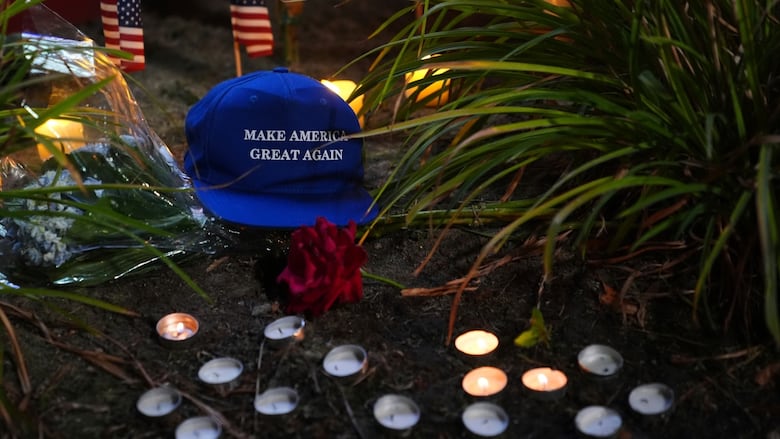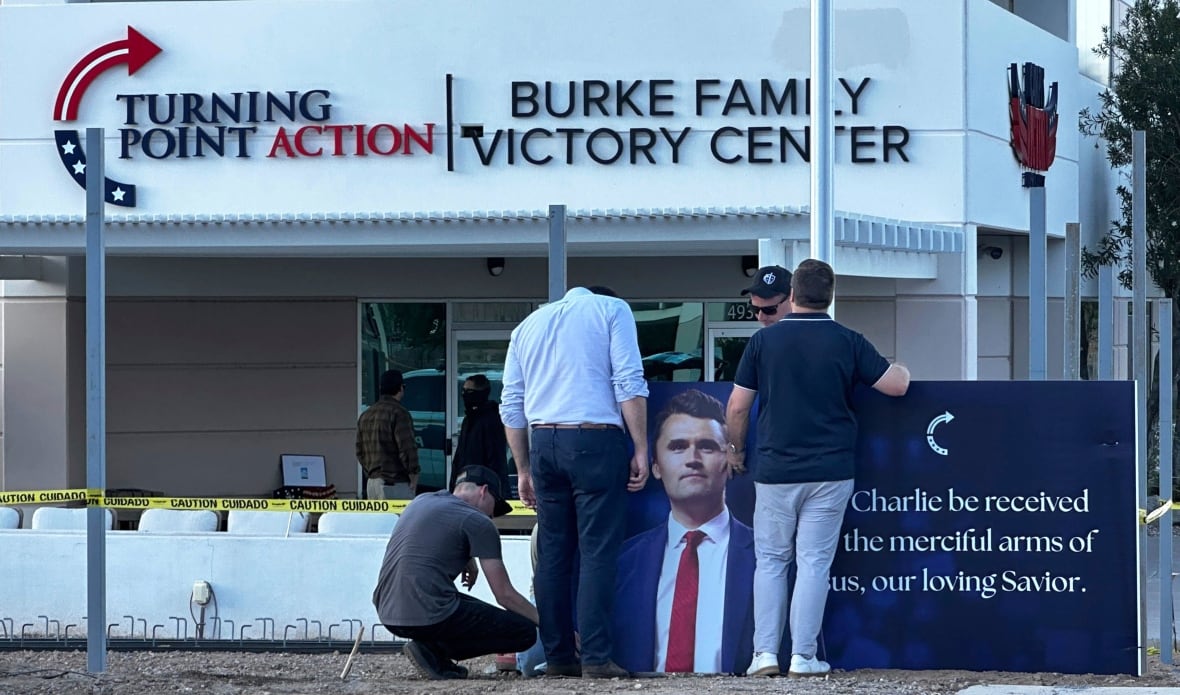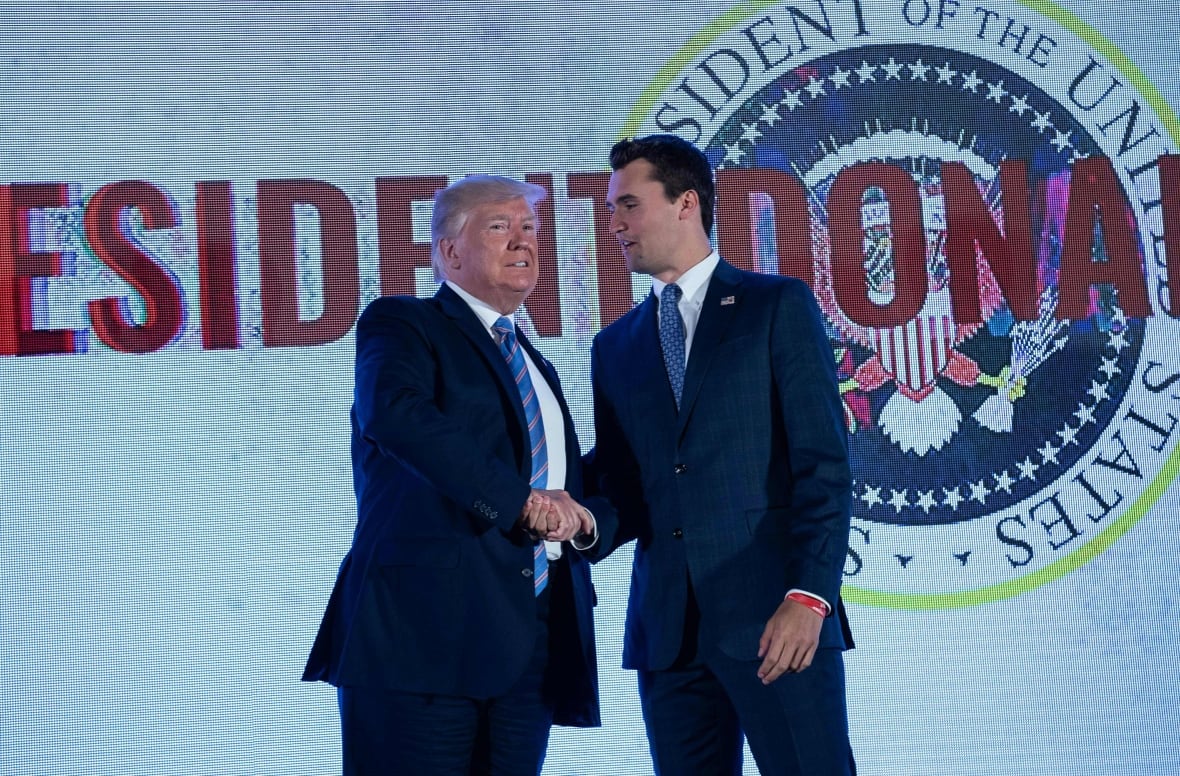
Social Sharing
The gunshot that killed conservative activist and commentator Charlie Kirk at a Utah university campus seems poised to reverberate across the U.S. in ways that could make Donald Trump's America even more polarized.
Kirk, the 31-year-old founder of Turning Point USA and a key force in building support among younger voters for Trump and his MAGA movement, was shot dead Wednesday afternoon.
In a video posted that evening, the U.S. president called Kirk"a martyr for truth and freedom" and said he was "filled with grief and anger" over the killing.
"It's long past time for all Americans and the media to confront the fact that violence and murder are the tragic consequence of demonizing those with whom you disagree, day after day, year after year, in the most hateful and despicable way possible," Trump said from the Oval Office.
Had he continued in that vein, Trump could have played the role of unifier-in-chief. However, he went on to condemn only the left's rhetoric, singled out political violence against Republicans and vowed a crackdown.
"For years, those on the radical left have compared wonderful Americans like Charlie to Nazis and the world's worst mass murderers and criminals," said Trump.

Charlie Kirk shot dead while speaking at Utah university
September 11"This kind of rhetoric is directly responsible for the terrorism that we're seeing in our country today, and it must stop right now... Radical left political violence has hurt too many innocent people and taken too many lives," said Trump."My administration will find each and every one of those who contributed to this atrocity and to other political violence, including the organizations that fund it and support it."
Can Trump soothe the divide?
It's hard to see how Trump's words in the wake of Kirk's death can serve to soothe the angry political divide in America rather than fuel it.
The U.S. political class — universally shocked by what Utah's governor has called a"political assassination" — is contemplating what the shooting means for the country's future.
The bullet that killed him "punctured the idea Kirk himself advanced: That political debate — albeit laced with verbal combat — could force a polarized country to confront its differences," wrote Adam Wren and Holly Otterbein in Politico.
Acts of political violence like this are terrifying in part because they are self-perpetuating, inspiring copycats and reprisals, wrote David A. Graham in The Atlantic.

"They also draw government responses, which is particularly worrying with a president who disdains the rule of law, overrides checks on executive power and wants to remove some civil liberties," Graham added.
Trump's own track record of inflammatory rhetoric includes a Memorial Day post this year directed at "the scum that spent the last four years trying to destroy our country through warped radical left minds."
During a campaign stop in November 2023, he promised to "root out the communists, Marxists, fascists and the radical left thugs that live like vermin within the confines of our country that lie and steal and cheat on elections."
Increasing regularity of political violence
While there has been condemnation of Kirk's killing across the political spectrum, some in the U.S. are asking whether there was an equivalent bipartisan response to the June shootings that killed one elected Minnesota Democrat and her husband and wounded another.
Trump called those attacks "horrendous" in a social media post, but when asked if he had spoken to Minnesota Gov. Tim Walz afterward, the president responded,"I think the governor of Minnesota is so whacked out. I'm not calling him. Why would I call him?"

Steven Webster, author of American Rage: How Anger Shapes Our Politics, says both Democrats and Republicans have been the target of political violence and he hopes for calm in the wake of Kirk's killing.
"The encouraging thing is that polls show that most Americans don't support political violence. But the sad reality is we're seeing it with increasing regularity," Webster told CBC News Network's Hanomansing Tonight.
Webster says the way political leaders react helps shape the public's view of such events.
'"The more we can have both Democrats and Republicans say that this is not acceptable and it's far outside the bounds of anything we would expect to see in our politics, I think the better off that we are," he said.
'It's got to stop'
American political leaders have had many opportunities recently to react to political violence.
There were 21 documented "terrorist attacks on public officials motivated by partisan political beliefs" between 2016 and 2023, compared with just two over the previous two decades, according to a report by the Center for Strategic and International Studies, a Washington think-tank.
WATCH | Political violence is 'really alarming a lot of Americans': 
Killing of Charlie Kirk a 'sad reflection' of U.S. politics: author | Hanomansing Tonight
September 11
Steven Webster, author of American Rage: How Anger Shapes our Politics, says there's 'a lot to consider' following the killing of conservative commentator Charlie Kirk at a Utah university on Wednesday.
That tally doesn't include the two assassination attempts on Trump in 2024, nor this year's shootings of the Minnesota Democrats.
"Political violence unfortunately has been ratcheting up in this country," Illinois Gov. J.B. Pritzker, a Democrat, told reporters on Wednesday after Kirk's death.

